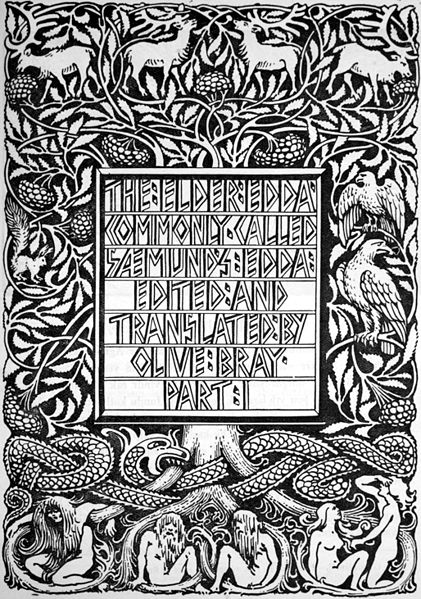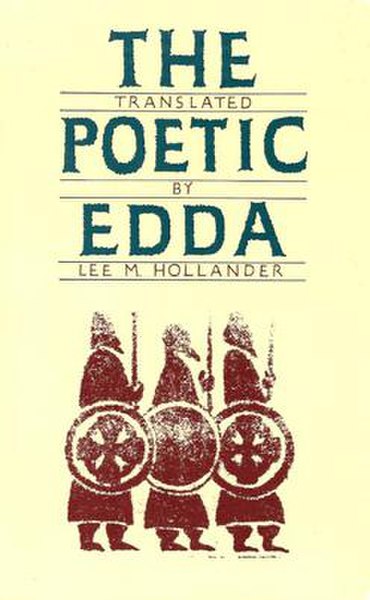Helgakviða Hjörvarðssonar
"Helgakviða Hjörvarðssonar" is a poem collected in the Poetic Edda, found in the Codex Regius manuscript where it follows Helgakviða Hundingsbana I and precedes Helgakviða Hundingsbana II. The portion of text which constitutes the poem is unnamed in the manuscript and may never have been intended to be viewed as a single poem, though scholars have assigned it a name for convenience. The text appears to be a patchwork of old poems, glued together with prose passages. The poem relates the story of Helgi Hjörvarðsson, loosely connected to the story of Helgi Hundingsbani.
Helgi, Sváva and Heðinn. An illustration from Fredrik Sander's 1893 Swedish edition of the Poetic Edda
The Poetic Edda is the modern name for an untitled collection of Old Norse anonymous narrative poems in alliterative verse. It is distinct from the closely related Prose Edda, although both works are seminal to the study of Old Norse poetry. Several versions of the Poetic Edda exist: especially notable is the medieval Icelandic manuscript Codex Regius, which contains 31 poems.
The title page of Olive Bray's English translation of Codex Regius entitled Poetic Edda depicting the tree Yggdrasil and a number of its inhabitants (1908) by W. G. Collingwood
The cover of Lee M. Hollander's Poetic Edda



